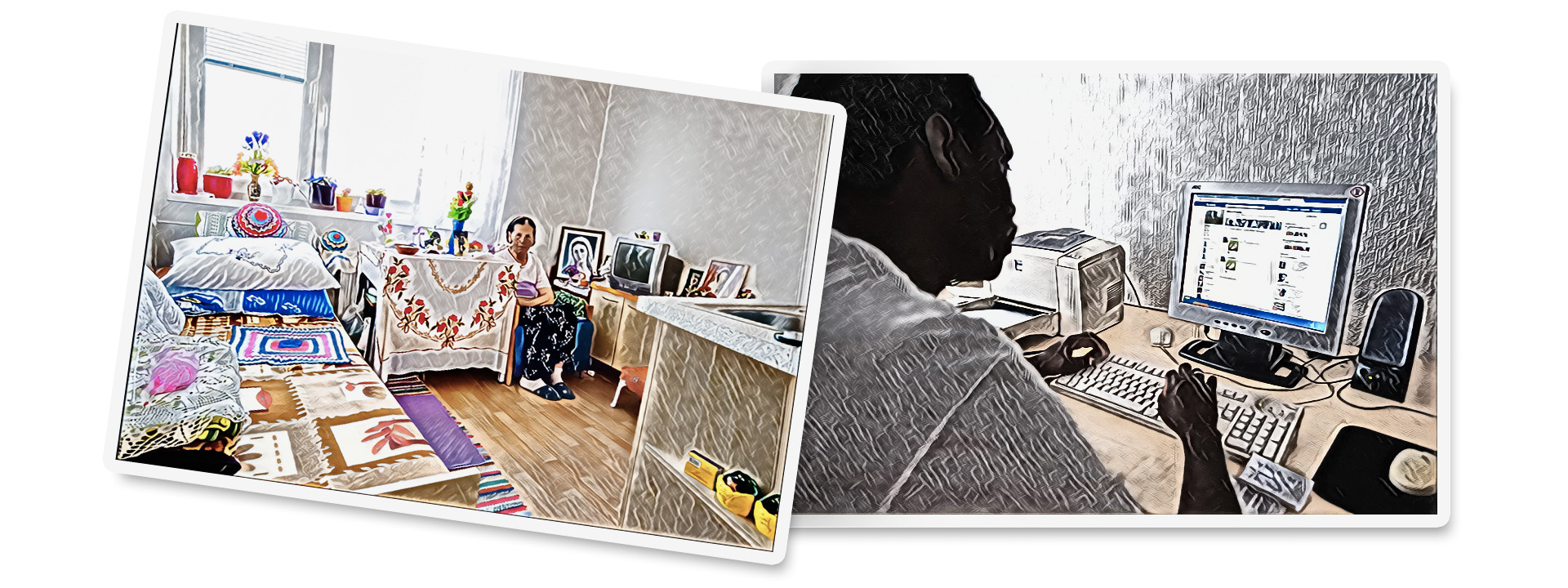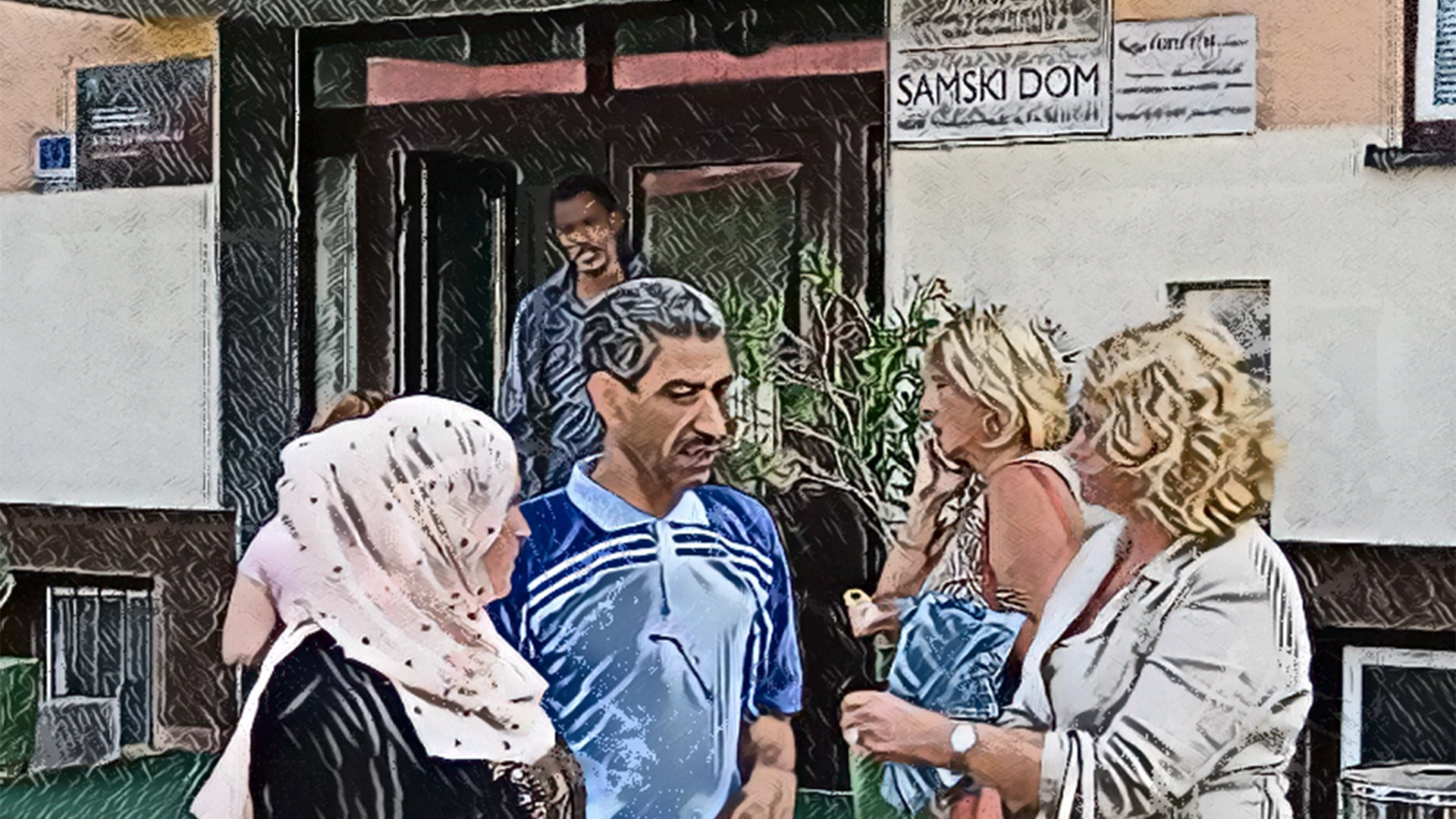“My life has always been in Slovenia, I hope to stay here. I have never experienced what it means to be a refugee, but I have travelled a lot, got to know many of the problems and hard lives of people on these journeys”.
Igor Bratuša is the director of the Integration House in Maribor, an institution of the Slovenian government’s Office for the Support and Care of Migrants (UOIM). Igor might be one of the many officials in Europe who deal with migrants, but just talking to him about his job is enough to understand how important a humane approach is to the people who have met him on their path.
“My work in this field started at the beginning of 2003, after my studies in administrative sciences in the field of asylum seekers. I started working with them in the Asylum House in Ljubljana. After my beginnings with asylum seekers, I went on to work in another field, with refugee. It was a much bigger challenge for me, because the work required a lot of new skills. I believe that it is essential for the successful integration of refugees that they are provided with adequate and affordable accommodation as soon as they acquire status, supported from the beginning by our office. Accommodation is a key step for integration, it helps these people to spend time learning the Slovenian language and finding their own accommodation, without time constraints, after the initial support,” says Igor. “Integration House takes care of this and accommodation with us can be up to six months depending on the decisions of a committee, which also decides on the refugee’s family reunification.

The Integration House in Maribor was officially opened in 2007, renovating the building that had housed refugees during the war in former Yugoslavia. The previous arrangement of the accommodation centres was for groups, whereas we wanted to organise tailor-made accommodation for individuals,” explains Igor. “We renovated the facility as a whole and organised 26 independent units for individuals, couples and families. The cost of accommodation for refugees is borne by the Government Office for the Support and Care of Migrants (UOIM), we provide cleaning and personal hygiene, we usually cooperate with the Red Cross organisation, which provides food aid every month. Those who need clothes can get help from the Red Cross or Caritas. There are three employees in the house: our task is to help all refugees in their first steps in Slovenia, to get to know the society in which they will live and to help them in all areas of their integration and their new life”.
Igor recounts how Maribor is an ideal dimension for integration: “It is the second biggest city in Slovenia, with all the services you can imagine (hospitals, universities, schools), but with the advantage of having a human dimension, because it is not too big and it is very easy to live in. Our work is important. The planning of integration measures and their effective implementation is essential: immigrants can only be successfully integrated into their new environment through effective programmes and, at the same time, through the integration process they are given the opportunity to be actively involved in the new society of the host country. It is a process that works in two directions,’ Igor explains, ‘our capacity to welcome, their willingness to integrate. Things work if we are all committed’.
Despite the commitment, organisation and possibilities that Maribor offers, Igor’s work is not easy. “All the stories I have encountered in my work are very stressful and also very painful. I have to behave as a professional in my work, so it is important that all these stories touch me to the extent that I personally allow them to. All these stories tend to take energy away, so it is important how each of us overcomes this stress,’ Igor explains.
I have my own system of closing doors, because otherwise the burden would be too great and I would succumb to the pressure of all the stories I have heard from refugees. However, it is important that no matter how difficult their stories are, all refugees are treated equally and that each one is guaranteed the most appropriate help they need at that moment in their lives”.

Although the approach is that of a professional, it is not always easy not to get involved.
“The stories touch you a lot, especially those in which you see how much suffering these people have brought with them,” says Igor. “We have to take these stories into account in our work, because often it is only through the stories and the problems related to them that you find a way out with various experts who can help. In particular, I remember a story involving a family that had two disabled children. The mother could not bear the burden of the new culture and life in another environment and therefore left Slovenia, while the father did not give up and is still trying to give these two children a life here.”
Slovenia also has its own story. “In the mid-1990s we received many refugees from Yugoslavia. They came as refugees, but for decades we had been living in the same country. There was a different way of approaching them, because we had the same history. Later it was different, we were faced with the arrival of refugees from other cultures. It was difficult for them, because we were just setting up the asylum system and public opinion was not very favourable to our work. With time, people also change, so with the arrival of more refugees, public opinion slowly began to change and to understand that not all refugees are bad people. In general, over the years of my work, I have seen how public opinion is improving,” says Igor.
“The border is only in people’s minds; people interpret the border as a dividing line between two countries in their own way. Borders have always been there and they will remain, but it is a great responsibility for all of us to make these borders welcoming and we have to make them welcoming for future generations,” Igor concludes.
by Christian Elia

